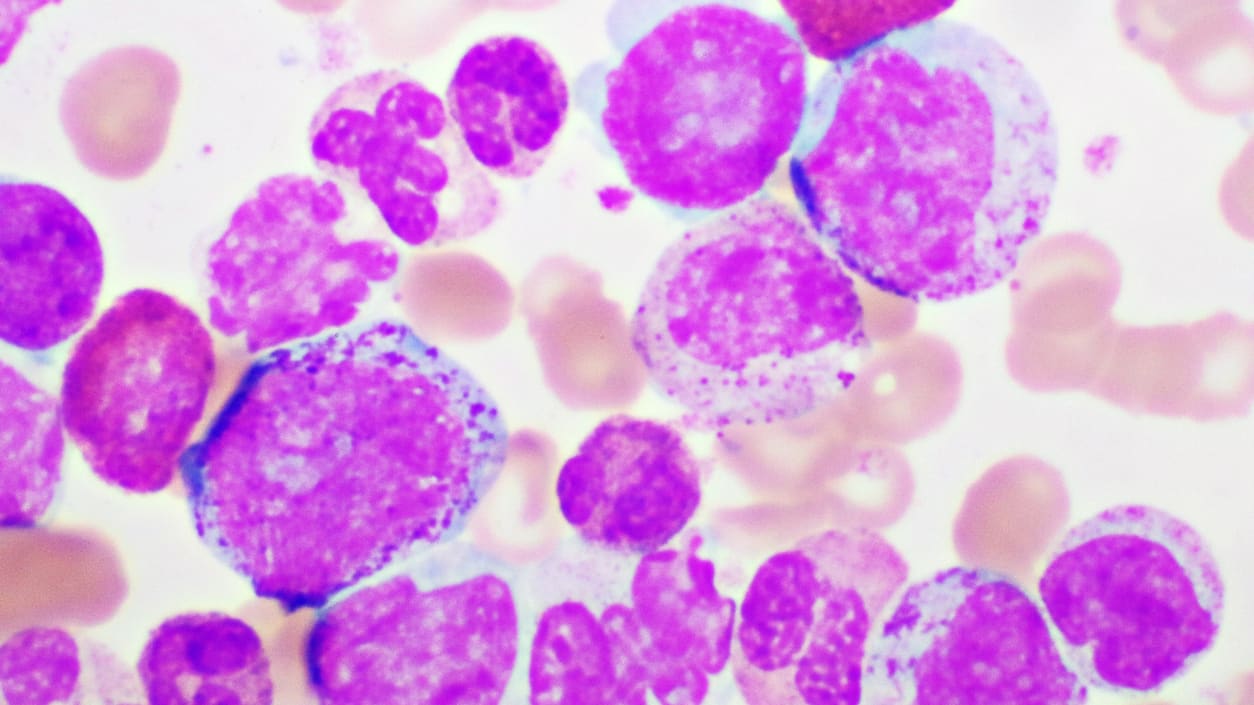Study finds gene therapy treatment for leukemia still effective 10 years later


A free daily email with the biggest news stories of the day – and the best features from TheWeek.com
You are now subscribed
Your newsletter sign-up was successful
Doctors at the University of Pennsylvania say that 10 years after treating two leukemia patients with an experimental gene therapy, both men were still in remission.
The doctors wrote about the cases in a study published Wednesday in the journal Nature. The treatment is called CAR-T cell therapy, and involves genetically changing T cells so they immediately attack cancer, The Associated Press reports. The cells remain in the body for years, and as they evolve, they keep the cancer at bay.
This was the first time the therapy has been studied for 10 years, the doctors said, and based on the results, "we can now conclude that CAR-T cells can actually cure patients of leukemia," said Dr. Carl June, an author of the study.
The Week
Escape your echo chamber. Get the facts behind the news, plus analysis from multiple perspectives.

Sign up for The Week's Free Newsletters
From our morning news briefing to a weekly Good News Newsletter, get the best of The Week delivered directly to your inbox.
From our morning news briefing to a weekly Good News Newsletter, get the best of The Week delivered directly to your inbox.
The treatment only has to be done one time, with the patient's T cells collected, modified, and then returned through an IV. Doug Olson, one of the men who received the gene therapy, was first diagnosed with chronic lymphocytic leukemia in 1996. He said that several weeks after going through the treatment in 2010, his doctor told him, "We cannot find a single cancer cell in your body."
Olson, 75, told AP he is still doing "great," and remains "very active. I was running half marathons until 2018. This is a cure. And they don't use the word lightly." The other patient doctors tracked also did well after the treatment, and died of COVID-19 complications last year.
In the U.S. and several other countries, CAR-T cell therapies are now approved for some blood cancers, and scientists are hopeful that there will soon be similar treatments for other types of cancers.
A free daily email with the biggest news stories of the day – and the best features from TheWeek.com
Catherine Garcia has worked as a senior writer at The Week since 2014. Her writing and reporting have appeared in Entertainment Weekly, The New York Times, Wirecutter, NBC News and "The Book of Jezebel," among others. She's a graduate of the University of Redlands and the Columbia University Graduate School of Journalism.
-
 The environmental cost of GLP-1s
The environmental cost of GLP-1sThe explainer Producing the drugs is a dirty process
-
 Nuuk becomes ground zero for Greenland’s diplomatic straits
Nuuk becomes ground zero for Greenland’s diplomatic straitsIN THE SPOTLIGHT A flurry of new consular activity in Nuuk shows how important Greenland has become to Europeans’ anxiety about American imperialism
-
 ‘This is something that happens all too often’
‘This is something that happens all too often’Instant Opinion Opinion, comment and editorials of the day
-
 Trump HHS slashes advised child vaccinations
Trump HHS slashes advised child vaccinationsSpeed Read In a widely condemned move, the CDC will now recommend that children get vaccinated against 11 communicable diseases, not 17
-
 FDA OKs generic abortion pill, riling the right
FDA OKs generic abortion pill, riling the rightSpeed Read The drug in question is a generic version of mifepristone, used to carry out two-thirds of US abortions
-
 RFK Jr. vaccine panel advises restricting MMRV shot
RFK Jr. vaccine panel advises restricting MMRV shotSpeed Read The committee voted to restrict access to a childhood vaccine against chickenpox
-
 Texas declares end to measles outbreak
Texas declares end to measles outbreakSpeed Read The vaccine-preventable disease is still spreading in neighboring states, Mexico and Canada
-
 RFK Jr. shuts down mRNA vaccine funding at agency
RFK Jr. shuts down mRNA vaccine funding at agencySpeed Read The decision canceled or modified 22 projects, primarily for work on vaccines and therapeutics for respiratory viruses
-
 Measles cases surge to 33-year high
Measles cases surge to 33-year highSpeed Read The infection was declared eliminated from the US in 2000 but has seen a resurgence amid vaccine hesitancy
-
 Kennedy's vaccine panel signals skepticism, change
Kennedy's vaccine panel signals skepticism, changeSpeed Read RFK Jr.'s new vaccine advisory board intends to make changes to the decades-old US immunization system
-
 Kennedy ousts entire CDC vaccine advisory panel
Kennedy ousts entire CDC vaccine advisory panelspeed read Health Secretary RFK Jr. is a longtime anti-vaccine activist who has criticized the panel of experts
